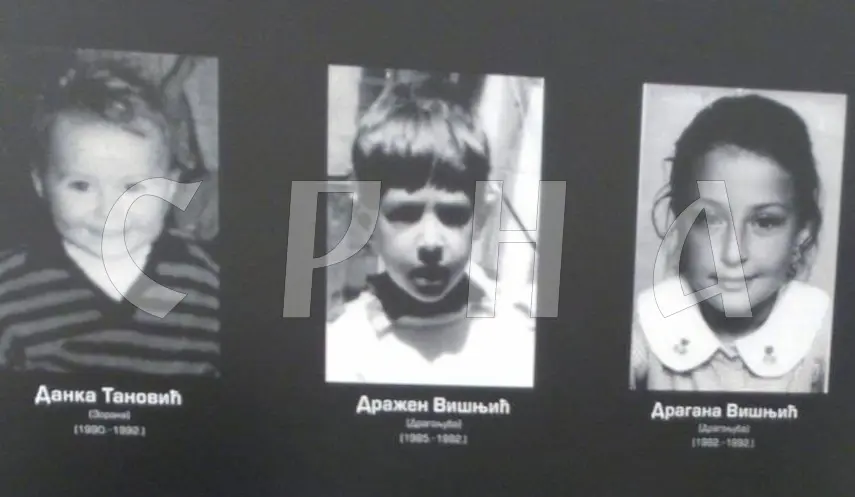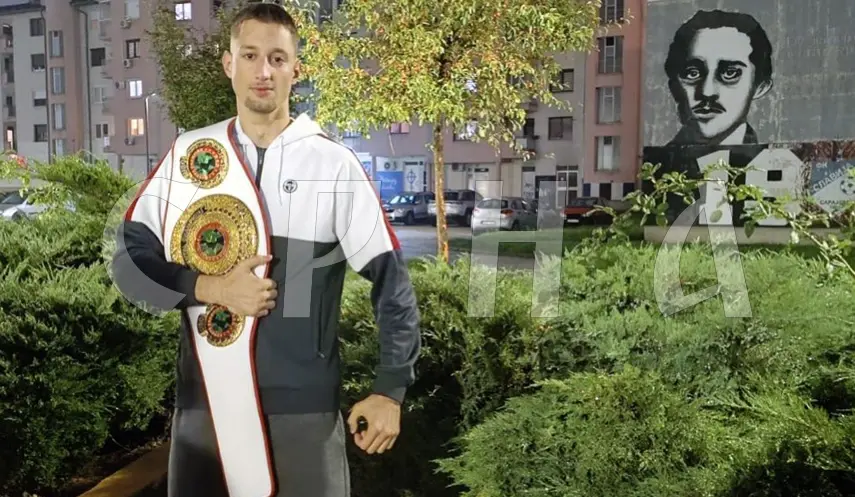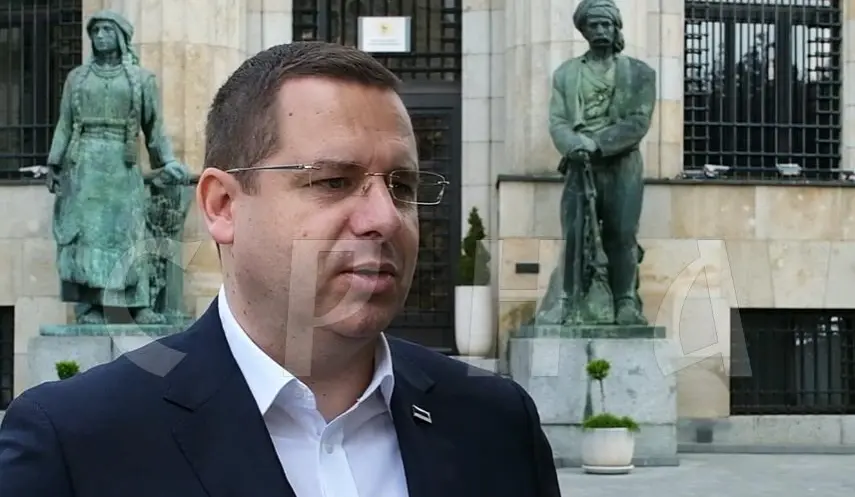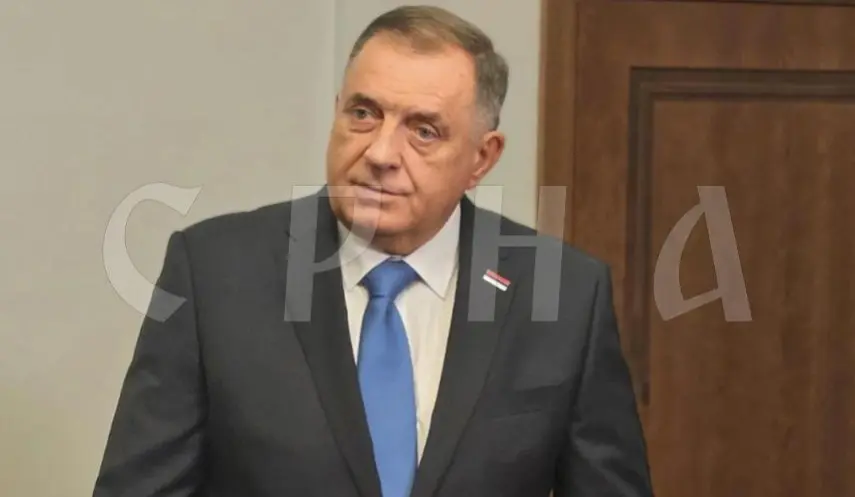MUSLIM COMMANDERS' ORDER: "KILL ONE BY ONE, DON'T SPARE EVEN BABIES IN CRADLES"
Republika Srpska - Jošanica - war crimes against Serbs /1/
07/28/2025
10:22

"Tonight, Allah willing, you are going on an important mission, where you will try to kill as many Serbs as possible, because dead Serbs are the best Serbs. Do everything to ensure that there are as many of them as possible. Kill them in order, don't spare even the ones in cradles!"
By: Tatjana Parađina
FOČA, JULY 28 /SRNA/ - Jošanica is a settlement in the municipality of Foča, Republika Srpska.
According to the 1991 census, Jošanica had 327 inhabitants, and the ethnic structure was made up of Serbs, 162 of them /49.5 percent/ and Muslims - 165 /50.5 percent/. According to the results of the 2013 census, Jošanica had 106 inhabitants, and the ethnic structure was made up of Serbs, 94 of them /88.7 percent/, Bosniaks - 11 /10.4 percent/ and others - one /0.9 percent/.
The local community of Jošanica was made up of several villages, and was located in the northern part of the municipality of Foča. Regarding the pre-war circumstances, that is, life on the territory of this local community, and therefore in Jošanica, Dušanka Višnjić-Lalović, who survived the crime in this village in Foča as a 17-year-old, said that until the beginning of the war, no one from her generation could have even guessed that a war would begin.
"People in Foča were united, we socialized with each other regardless of nationality. I could not have imagined, even in my wildest and the most terrible dreams, that a war would happen in my city and that I would experience the massacre in Jošanica that I experienced," she said.
NOTHING IS SACRED TO THEM, AS USUAL, MUSLIMS ATTACK ON THE EVE OF THE FAMILY PATRON SAINT DAYS
The Atlas of Crimes Against Serbs During the Defense-Patriotic War, published by the Republic Center for the Research of War, War Crimes and the Search for Missing Persons, states that the attack on Jošanica was preceded by a reorganization within the ranks of the so-called Army of BiH in this area, which greatly influenced the action itself.
Details were provided in the testimony of Ibro Mehović, a former member of the so-called Army of BiH and a post-war employee of the Army of the Federation of BiH, who said that in December 1992, the commander of the First Drina Brigade and after the disbandment of the crisis headquarters in Goražde organized and formed the so-called "Eastern Bosnian Operational Group," known as IBOG.
"Only then did coordinated actions take place between the formed brigades, so that in December 1992, in a joint action planned by the commander of the 1st Drina Assault Brigade and the 1st Višegrad Brigade, together with battalions from the municipality of Rogatica and the sabotage detachment of the 31st Drina Assault Brigade, an action was carried out in the direction of Foča from the left and right sides of the Drina River.
Thus, on December 17, 1992, a meeting was held between the commanders of the 1st Drina Assault Brigade, the 1st Višegrad Brigade, all three battalions from the territory of the Rogatica municipality, the saboteur detachment of the 31st Drina Brigade, and the 2nd Saboteur Detachment from Vitkovići.
On that occasion, it was agreed that three battalions from the municipality of Rogatica and the saboteur detachment of the 31st Drina Brigade would cross the Drina River by boat and attack Zebina Šuma, while the 1st Drina Brigade with its saboteur groups and the 1st Višegrad Brigade with its saboteur detachment would attack the place of Jošanica on the right bank of the Drina River and then continue in the direction of Foča," witness Mehović said.
MESSAGE OF MUSLIM COMMANDERS: "DON'T SPARE EVEN BABIES IN CRADLES IN JOŠANICA!"
The motives for the attack on Jošanica are best described in the words spoken during the formation of the Muslim army in Sadba on December 10, 1992. Namely, at that time, among other things, the order was: "Go to the largest Chetnik nest, Jošanica. You must not spare even babies in cradles!"
The same information was presented by Vladimir Đurović in the book "Lies, Hate, Crime - This is Bosnia," which states:
"How did /Hadžo/ Efendić and his officers, the murderers, prepare the campaign against Jošanica, with the intention of committing monstrous crimes against the Serbs of Jošanica? They knew that the Serbs of Jošanica and their guests /on the eve of the feast of St. Nicholas Day/ would be relaxed and careless. That is why Efendić agreed with officers Ferid Buljubašić and Zaim Imamović to gather 600 soldiers at dusk, on December 18, organize them into ten groups of 60 each, and send them to Jošanica.
It was also added that all the soldiers from Jošaninica should be sent on the mission, because they know the terrain best. The rest should be filled with the citizens of Goražde. At the agreed time, everyone arrived at Sadba, and Efendić gave them a short speech, in which, among other things, he said: `Tonight, Allah's will, you are going on an important mission, on which you will try to kill as many Serbs as possible, because dead Serbs are the best Serbs. Do everything to ensure that there are as many of them as possible. Kill in order, do not spare even babies in cradles!`"
Asim Hajdarević, one of the participants in the attack, also testified about the formation and division of functions for the upcoming attack that took place in Sadba. He stated that he arrived at the appointed place on December 18, 1992 at 6:00 p.m.
"The army had already gathered near the school and the commander had formed a line... Namely, the commanders told us that this unit, which numbered 600 soldiers, was going to the area of the municipality of Foča, namely Jošanica, where there were several Serb villages, and that we should burn down all the houses and other buildings and kill and massacre the entire civilian population we found in those villages.
I noticed that among that army there were also people in black uniforms who were from the outside, and there were about 150 of them. Some of the soldiers were also from the Foča area, that is, they were people who fled from Foča during the war," Hajdarević said in a statement to the Public Security Station in Foča on December 25, 1992. /to be continued/

RECEPTION HELD FOR NEW EUROPEAN BOXING CHAMPION IN UBO VERSION

KOVAČEVIĆ: SDS AND OPPOSITION WEREN'T LOOKING FOR PRESIDENTIAL CANDIDATE, BUT FOR SOMEONE WILLING TO LOSE ELECTIONS

BISHOP JOVAN: BISHOP'S PALACE IN PAKRAC HAS RICH CULTURAL LIFE



